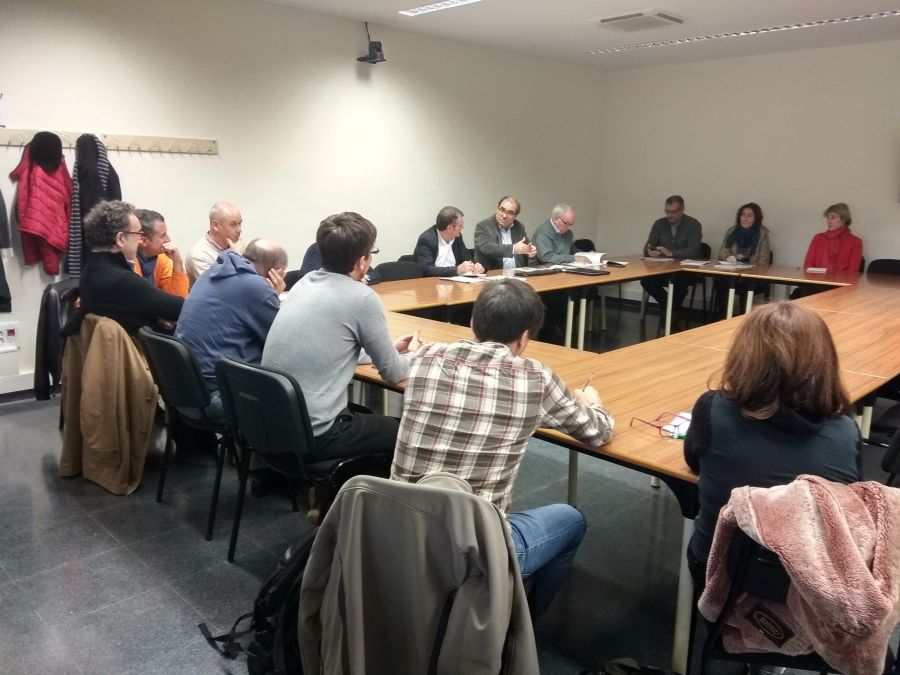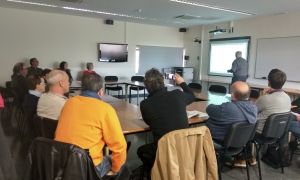The Fundació Catalunya Europa, with the support of the Diputació de Lleida, organized the seminar "Technological Innovation in the agri-food sector: Challenges and Opportunities" that featured the presentations by Joaquim Brufau, Director of Mas Bové (IRTA) and Agustí Segarra, Professor of economics applied to the Rovira i Virgili University and author of the report "The Catalan agri-food industry: a business perspective", commissioned by the FCE.
The objective was to share ideas and good practices among professionals and experts in the sector gathered at the University of Lleida. Segarra stressed the economic importance of the sector, which also contributes an important important territorial component, which can help to curb the depopulation of rural areas.
Another important factor highlighted by Segarra is the importance of non-technological innovation in the sector. Since 2005, improvements have been made in terms of organizational innovation and marketing innovation, which together with technological innovations are key to the future of the sector. Another issue to be addressed is public aid received by the agri-food sector. Segarra did not show otherwise, but warned that these grants could discourage private sector investment. For this reason, one of the solutions that it contributed is to favor the fiscal benefits, for example, making investment in R & D devalued. Finally, Agustí Segarra also emphasized that one of the long-term goals should be the cooperation of agri-food companies.
For his part, Joaquim Brufau warned of the major challenges facing the livestock sector, climate change, the European model of animal production, which is very restrictive according to its opinion and the perception of the consumer. Brufau acknowledged that livestock farming is a problem in terms of its responsibility for climate change, especially the beef sector, but it is a commitment to innovate and seek new opportunities, for example, finding ways to turn waste into resource.
Therefore, we must innovate to achieve the goals of sustainability, efficiency and traceability, which contribute to the circular economy and adopt strategies to improve the welfare of animals.









